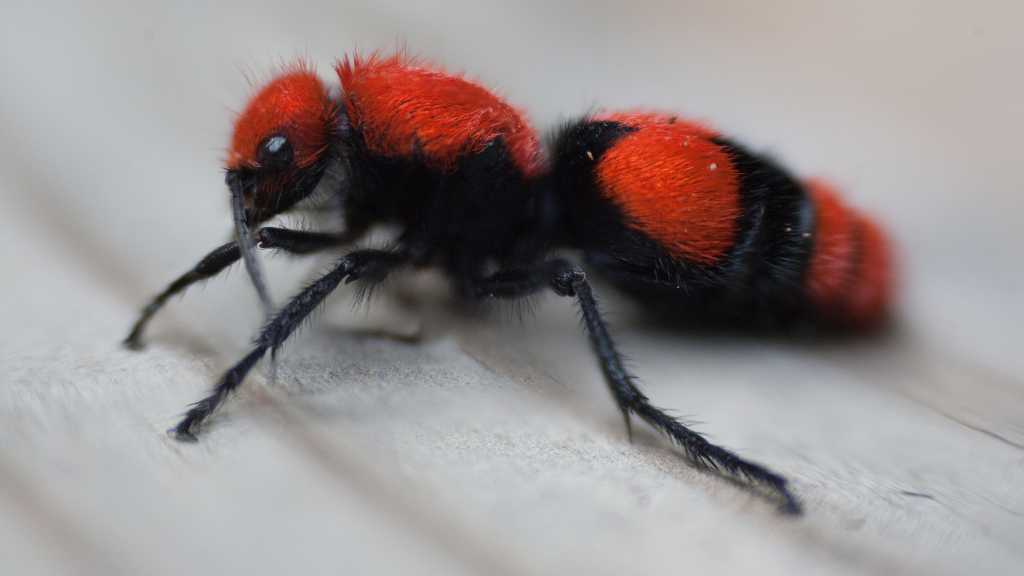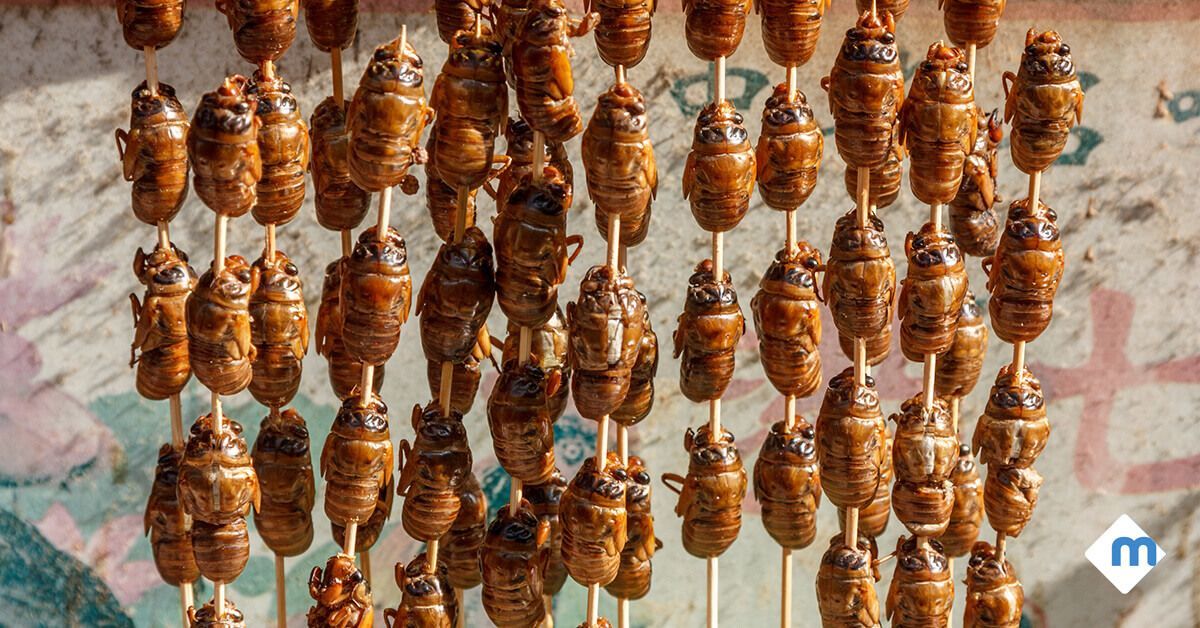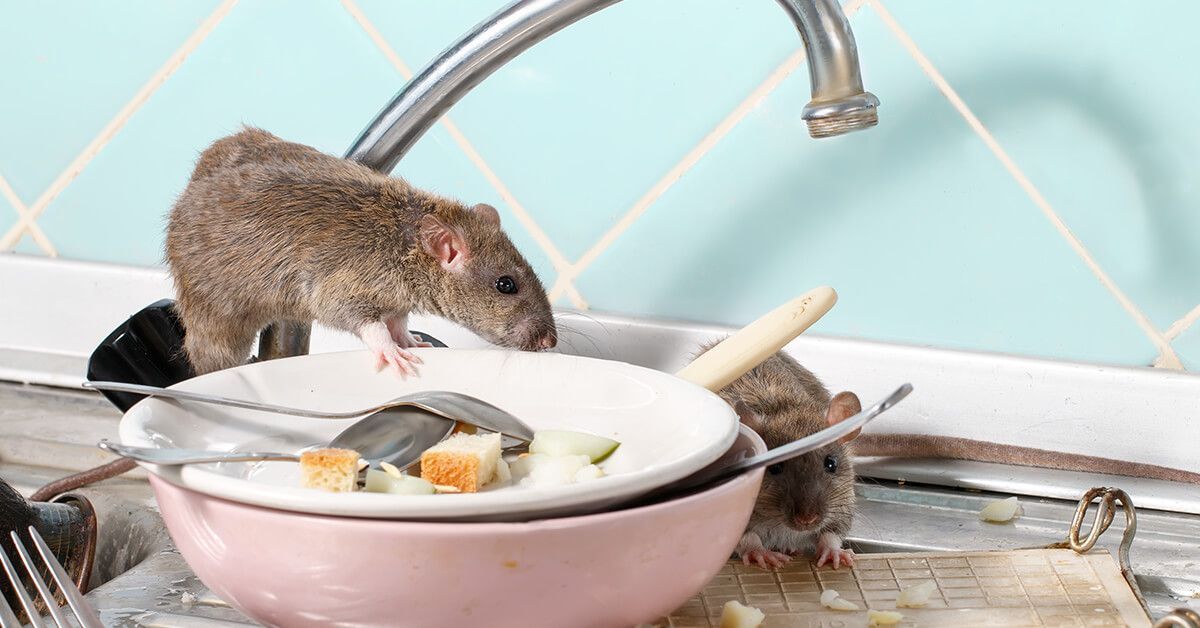Despite their name, cow ants don’t really have anything to do with cows—and they’re not even ants. Cow ants are actually a species of ground wasp commonly found throughout the southwestern United States (though they live all over the country in warm climates). These insects are brightly colored and known for their extremely painful sting.

The cow ant ( Dasymutilla occidentalis ) is also known as the velvet ant, red velvet ant, bull ant, and cow killer. As stated above, these insects are not actually ants, but rather ground wasps from the Mutillidae family that resemble ants.
Cow ants have black bodies covered in distinctive red/orange fuzzy “velvet” hair that acts as a warning to potential predators. These insects will also let out a squeaking sound when threatened as another warning.
Unlike paper wasps and other members of the Mutillidae family, cow ants are solitary creatures, which is why you may see just one crawling around on the ground by itself.
Females are wingless and possess a stinger that is almost the length of their body ( about ¾ inch ) when extended. Females are the ones most commonly spotted out in the wild and the ones to steer clear of since they sting. Males have wings and fly around in search of a mate. They also have the same colorful “fur” as females; unlike them, however, males do not have stingers.
Rather than building their own nest when they’re ready to reproduce, females seek out the burrow of other ground wasps, bees, or beetles and lay their eggs on the larvae inside. When cow ant eggs hatch, they are parasitic and feed on the larvae of these insects.
It’s not totally clear why these insects are called cow ants or cow killers, other than the fact that they produce an extremely painful sting. The venom in their sting creates a painful reaction but is not strong enough to kill a cow (or a human for that matter).
Because of this powerful sting, legends in the Old West developed that if a cow stepped on one of these wasps, it would run in pain, break a leg, and die from the injury. The name stuck, despite being somewhat of a misnomer.
If you encounter a cow ant outside, there is a possibility it could sting you. Cow ants are not predators—in fact, adult cow ants mainly feed on nectar—so their mouthparts are not made for biting or injuring. Cow ants do not seek out humans or other creatures to sting, but rather they are equipped with powerful venom as a defense mechanism. A cow ant sting is rated 3 out of 4 on Schmidt’s sting pain index so watch where you’re walking and do not attempt to handle these insects. When cow ants sting, the entire length of the stinger is inserted into the skin like a hypodermic needle, and the pain can last for 30 minutes.
If you’ve spotted cow ants in your yard, it’s best to get rid of these pests so you and your family don’t accidentally encounter one of their serious stings. The last thing you need is for one of your kids or pets to mistake these foes for a friend and end up in excruciating pain. Professional pest control products can keep your outdoor spaces clear of these insects that cause harm.
Whether the issue is cow ants, worker ants, or fire ants, talk to our experts about getting rid of pests in and around your house. By scheduling regular pest control visits, you can rest easy knowing your home is protected from these unwanted guests.




